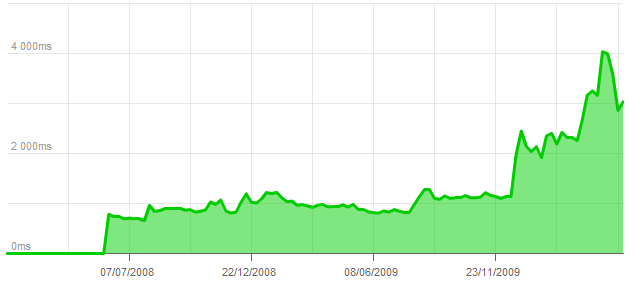I’ve started writing this post in Amsterdam airport…I’m on my way to Arica in Chile where I’ll be (hopefully) burying my father, Chris, who died on the 19th of July. I say hopefully not because this is something I’m looking forward to but because I face a number of legal and monetary issues with the hospital where he died.
So, the backstory….

My father was born in 1944 in Liverpool. He had a childhood disrupted by his father’s death while he and his mother were travelling to join him in post-war Frankfurt. At the age of 4 (I believe – this needs checking) it seems that this had a somewhat traumatic effect on his life. Whether it would have worked out any differently if his father hadn’t died so young is hard to know. It seems he never really bonded with his rather quiet and gentle stepfather, John.
John was one of those people that sadly get little praise in life…he didn’t have a rapier wit, good looks or intense charm. His predecessor, it seems, did. But he did do his best to provide a stable and comfortable environment for my father and grandmother (I later lived with them at different times of my life.)
Yet it seems that my father inherited his father’s flaws (a taste for women, good times and risk taking) without some key strengths (a disciplined and intellectually rigorous upgringing in particular) that would have helped my father excel. He was certainly charming, good looking and intelligent.
Family Life
My father, to the best of my knowledge, had three children… myself first, David, in 1969, Miguel two years later, to his first wife Ruth, and Maria in 1981 to his second wife Ann.
It’s fair to say that neither marriage went well. To paraphrase my mother:
He was a drinker with a vicious temper and a long arm. He couldn’t understand the word no.
There are other things I’ve learned recently which I won’t share…but the picture was of a man who couldn’t take his responsibilities seriously and, when confronted, would lash out at anyone around.
The Consequences
 I’m going to skip forward now to 1985… by this point my father had been divorced twice and no longer had custody of any of his children. He’d kept me close for years, but even I tired of his temper, his constantly failing relationships and the occassional humiliation of a beating. It’s a curious thing about being smacked around by your father…the physical pain is nothing. It’s the betrayal of trust that hurts and damages you. No parent should resort to violence when faced with the annoyances of raising a child. Nor, of course, should a child ever survey a trashed kitchen following violence between their parents. Ever. I could go into the reasons why violence breaks out in domestic settings, but that subject deserves better than I can give right here.
I’m going to skip forward now to 1985… by this point my father had been divorced twice and no longer had custody of any of his children. He’d kept me close for years, but even I tired of his temper, his constantly failing relationships and the occassional humiliation of a beating. It’s a curious thing about being smacked around by your father…the physical pain is nothing. It’s the betrayal of trust that hurts and damages you. No parent should resort to violence when faced with the annoyances of raising a child. Nor, of course, should a child ever survey a trashed kitchen following violence between their parents. Ever. I could go into the reasons why violence breaks out in domestic settings, but that subject deserves better than I can give right here.
Since 1971 my father had been working his summers as a tour guide in Oostende, Belgium. This suited him fine…a steady stream of giddy girls on holiday, few responsibilities, and plenty of nights out left him, it seems, relatively contented.
South America
By this point my father, always a keen lover of all things Spanish, had started to spend his winters in South America where he could travel around enjoying himself whilst maximising the money he earned in his Belgian summers.
This was actually a fairly calm period… I lived with my grandmother and rarely saw him. Generally I did enjoy his company, but there was always a nervousness over when he might kick off but, in general, he seemed to have mellowed.
Unfortunately, in 1987, everything changed again. I was living with my grandmother and had done reasonably well in my A levels. I’d gained a job at ICI on a trainee developer program. For me, at least the future looked good. However, like all good things in my life there always seemed to be trouble waiting for me.
Loss
Just a couple of weeks into my new job, my grandmother was diagnosed with lung cancer. Her decline hadn’t been pleasant to experience and before she was diagnosed she’d been struggling with shoulder pain that left her crying until the doctor could come and give her a shot of painkillers. Eventually it became too much for both of us. She was booked into hospital in a few weeks time… but that was too far away. I learned then a painful but valuable lesson.
The doctor could do nothing to have her admitted more quickly. I visited the hospital. No, they could do nothing either…it was a non urgent case of painful arthritis. Yet it was all too much to bear…I was in tears when a male nurse took me to one side and explained something…
They’re letting you look after her. She’s dependent on you. You want to know how to get her into hospital quickly? Refuse. Just tell the doctor you’ve had too much and you’re moving out.
Basically, I was going to have to play poker with my granny. But I went straight from the hospital to the doctor’s surgery and insisted I saw him. Three hours later, an ambulance arrived.
The next day they discovered the pain was caused by secondary metastasis (I think that’s the correct term, I’m writing this on a plane). She had advanced lung cancer that had spread through her body. She had less than a week left.
There was a dull, hollow ache inside me. I wasn’t close to my mother since I’d not lived with her for 14 years and besides, her and her new family had moved to Spain two years earlier – something that at the time had left me less than impressed.
I had my friends, Linda and Peter especially who were wonderfully understanding. And that weekend, my father’s summer job finished and he was able to arrive.
So he signed over everything. It was down to me to deal with the estate. There wasn’t much there, to be honest, and a lot of debt.
My father had his tickets for South America booked a long time earlier…in this time air travel was still relatively expensive and inflexible. I later learned that airlines usually aren’t so bad in cases of bereavement. I think he could have changed flights.
But he didn’t and just a few days later he was gone. Two days after that I buried my grandmother.
What’s crazy is that in all this I even managed to redecorate the lounge in time for the funeral, thanks to my friend Linda. It was important that in death everyone saw the best in my grandmother…
Losing Trust in Everyone
Soon after the vultures were circling…I couldn’t take over the mortgage or I’d have to pay off all debts, and I couldn’t get a new mortgage at such a young age and such little credit history…especially on a shared ownership house like this.
You see, what happens with a debt secured on property is that you hand over all rights to the lender. If you fail to keep up repayments the lender can take possession. The lender will then sell it. If a profit happens to be made then that’s great for the lender. They keep the money.
In fact, some even have a policy of quick repossessions during a buoyant market.
In retrospect I believe I was badly advised. But lacking support just trying to hold down a job and simply live right was enough to occupy me. When I was evicted from the house I lost my faith in society, my parents (sorry Mum…but you later won it back, so that’s ok, trust me) and everyone except my friends.
The council couldn’t help – I was told a single male would be at the bottom of the waiting list for social housing.
I didn’t want my fathers’s help and, by the dubious measure of taking out a loan to pay the deposit on a tiny studio flat, I had a place to live. While this was happening my father was made redundant from his summer job and announced he was going to stay in South America.
Having discovered financial wizardry I even managed to buy myself a niceish car I couldn’t afford on credit. Life had been hard, but now, I felt, it was improving.
Two months later I received a letter from my father asking for help – he said he’d been robbed of all his money and needed the money I owed him (I think he believed there was money in his mother’s estate) and could I send £1500 as soon as possible.
I had about £30 in the bank.
The next six months were hell as I sent over dribs and drabs in response to his increasingly strident letters, but I remember one triumphant moment. I’d been caught at work calling the Chilean embassy. I was in trouble until the reasons were explained to a senior manager. He put me in touch with the right people and before I knew it the Foreign Office offered a loan to help repatriate my father.
I’d done it. He was going to be ok. I’d sent as much as possible to him, borrowing money, trying to sell what I could legitimately sell… but it amounted to no more than around £600 over the months.
I went out and bought a £15 phone card to give the good news.
Son… I thought you had a good job? I need the money why don’t you have any?!
I told him it was no problem… I could get him home! I explained the loan.
What use is that? I’d be in the same situation, but in England…it’s much cheaper to live here
He was angry. And I remembered all those times he’d been angry before. The card ran out cutting him off mid-sentence. It was over. I was never going to speak to him again. I realised he hadn’t been asking me for help…he’d been asking me for money, that’s all.
Since then I stopped responding to his letters. I’d been struggling with the flat so I sold up and moved into a room. We lost contact.
Update 29-08-2010: I was reading through his letters yesterday and realised that I’d found the solution of a loan for repatriation earlier than I thought I had. I’d simply brought it up again during that last phone call and he essentially repeated what I’d said. I also think I’d continued to send him money for a while, but remained mute.
In 2001 I managed to find out that he’d renewed his passport in Quito in 1997, but that was all I had. In 2006 I was invited to a wedding in Lima, Peru, and took that as an opportunity to try and find him. I got close…searching the town of Arica in the far north of Chile. But if he saw the notices he didn’t respond. If he’d even searched Google he’d have found me for years and years. I even put a page up about him which was good enough for my estranged sister to find me with this year. In the end I reached the conclusion that he no longer wanted to find me.
And then the knock on the door in the early morning. I don’t know why the police do it that way. The officer was perfect…knew exactly how to break the news. Quickly, succintly, followed by the detail. He’d died on the 19th of July in a hospital in Arica, Chile.
I’m going to wrap this up now…it’s an awfully long piece to type entirely by phone and my fingers are aching. Hopefully I’ll be able to post it up on arrival to Lima. More soon… my plan is to document this trip, my feelings and my need to find reconciliation wherever possible. Sharing helps.
















































































